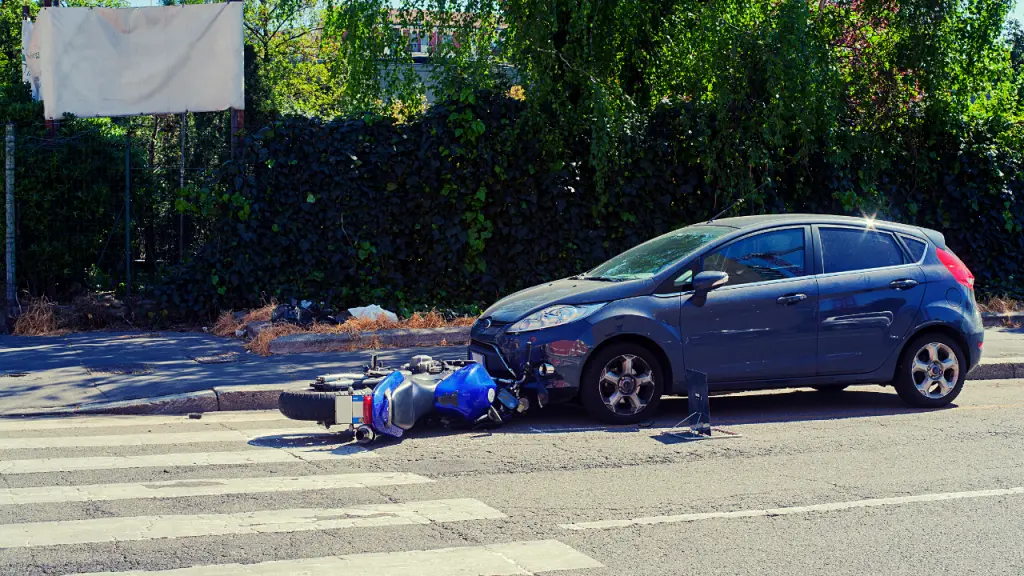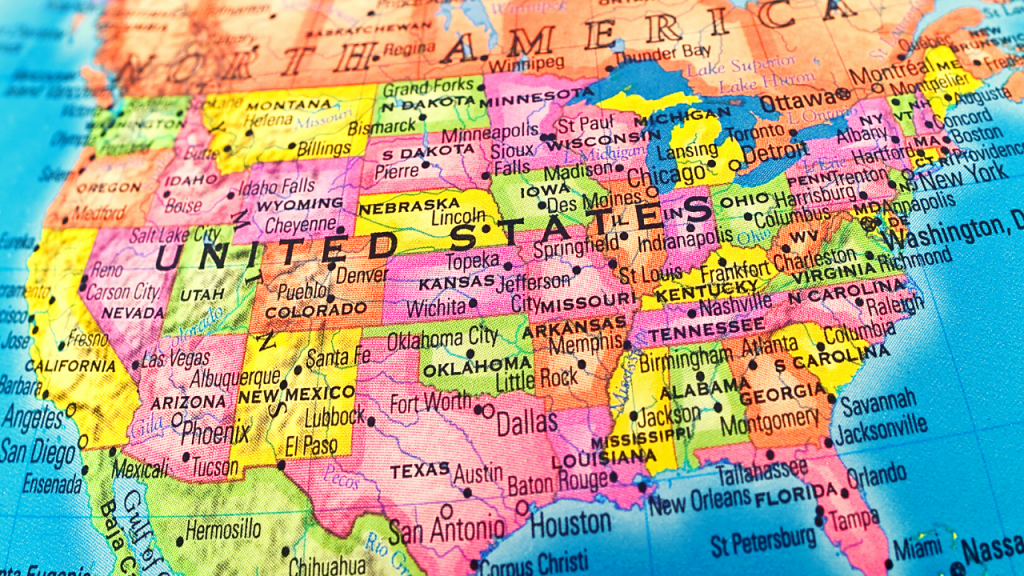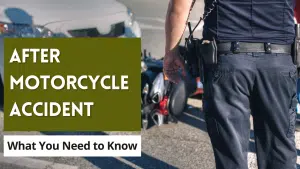Motorcycle helmet laws vary in each state, which can make riding a motorcycle across state lines quite a hassle. Not everyone would be aware of what is legal and not in each state, so if you are not wearing a helmet and you travel to a state with helmet laws in place, chances are you would be committing an expensive violation.
To avoid such inconvenience during a ride, it is best to wear a helmet at all times. Not only will it ensure safety, but you will also not have to worry about the laws changing from state to state.
What do motorcycle helmet laws do? Are they effective?
Motorcycle helmet laws aim to lower overall fatality rates and reduce the likelihood of head injuries, fatal or otherwise, in motorcycle accidents. In 2012, the United States Government Accountability Office (GAO) reported that “laws requiring all motorcyclists to wear helmets are the only strategy proved to be effective in reducing motorcyclist fatalities.”
This is further supported by reports from the National Highway Traffic Safety Administration (NHTSA), which found that helmets reduce the risk of head injuries by 69% and death by 42%.
Reports from the GAO and the NHTSA also disclosed that in 2017, the number of non-helmeted motorcycle rider deaths in states without motorcycle helmet laws (1.777) was ten times as many as the number of non-helmeted motorcycle rider deaths in states with motorcycle helmet laws (170).

Aside from fatality rates, motorcycle helmet laws also reduce social and economic costs. According to the GAO and NHTSA, helmets save $2.7 billion in economic costs every year. In states with a universal helmet law, the mandatory use of helmets saved \$725 in economic costs per registered motorcycle. This is compared to the \$198 protected per registered motorcycle in states without helmet laws.
The GAO and the NHTSA also reported that helmets prevent $17 billion worth of social harm every year. However, another \$8 billion could have been saved if all motorcycle riders across all states wore helmets.
How effective are motorcycle helmet laws?

Several reports from the NHTSA reveal that the rate of helmet use in states where motorcycle helmet laws have been repealed has dropped significantly. To put things into perspective, let us look at some examples.
In Arkansas, the compliance rate for helmet use dropped to 52% from 97% when they replaced their universal helmet law with a partial one. Florida and Louisiana did the same thing and saw a drop in their helmet use compliance rates, from 99% to 53% for Florida and 100% to 52% for Louisiana.
As a result of these drops in compliance rates, the number of killed riders and sustained traumatic brain injuries increased. A year after they repealed their existing universal helmet laws, the fatality rates of Arkansas and Louisiana increased by 21% and more than 100%, respectively. Following this, Louisiana decided to reenact its universal helmet law.
States with motorcycle helmet laws

Out of all the states, only three do not have motorcycle helmet laws in place. The rest of the states have legislation in place to mandate the use of helmets. These are:
Without age requirement
Alabama
California
Georgia
Louisiana
Maryland
Massachusetts
Mississippi
Nebraska
Nevada
New Jersey
New York
North Carolina
Oregon
Tennessee
Vermont
Virginia
Washington (District of Columbia)
Washington (state)
West Virginia
With age requirement
• 25 years old and below
Missouri
• 21 years old and below
Arkansas
Connecticut
Florida
Kentucky
Michigan
Pennsylvania
Rhode Island
South Carolina
Texas
Utah
• 19 years old and below
Delaware
• 18 years old and below
Alaska
Arizona
Colorado
Hawaii
Idaho
Indiana
Kansas
Maine
Minnesota
Montana
New Mexico
North Dakota
Ohio
Oklahoma
South Dakota
Wisconsin
Wyoming
States without motorcycle helmet laws

• Illinois
Illinois does not require motorcycle riders and passengers to wear helmets. However, the state requires eye protection such as glasses, goggles, or a transparent shield.
Under Illinois law, “glasses” refer to eyewear made of shatter-resistant material; “goggles” refer to eye protection that also protects the sides of the head without compromising peripheral vision; while a “transparent shield” refers to a windshield made of shatter-resistant material installed at the front of the motorcycle that extends above the eyes when the rider is seated in an upright riding position.
• Iowa
Iowa had repealed its mandatory motorcycle helmet law in 1976, but as of 2013, there is proposed legislation to reinstate it.
• New Hampshire
New Hampshire does not implement any helmet law since the National Highway System Designation Act was passed in 1995, but riders under the age of 18 are still required to wear helmets.
The debate surrounding helmet laws

Despite many reports and studies proving the efficacy of helmets, debates surrounding their mandatory use are still ongoing.
Pro-helmet advocates argue that federal law should require motorcycle riders to wear helmets when riding, while the opposing side insists that wearing a helmet is solely the rider’s decision.
Those against helmet laws also argue that making helmet use mandatory is the government’s way of controlling each state. On the other hand, those for helmet laws believe that such legislation saves lives, reduces the risk of injuries, and even helps curb motorcycle theft.
The beginning of helmet laws

The US government started encouraging states to pass motorcycle helmet laws in 1967. To do this, Congress created a federal safety program that promised highway construction funds to states that will implement motorcycle helmet laws. Eight years later, 47 states enacted helmet regulations.
However, the states pressured Congress to revoke the federal authority to penalize those who refuse to implement helmet laws. In 1976, Congress eventually gave in, and shortly after, several states relaxed their helmet laws.
In another attempt to entice states, Congress passed the Intermodal Surface Transportation Efficiency Act in 1991 which provided incentives to states to enact helmet laws. However, four years later, Congress reversed its decision again by lifting federal sanctions against states without helmet laws.
Pro-helmet law advocates

People who support mandatory helmet use believe that helmets save lives, and riders are likely to use them when states enact laws requiring them.
Many studies support this belief as well. According to the NHTSA, helmets reduce the likelihood of a rider getting killed in an accident by 42%. The Hurt Study supports the NHTSA’s findings, revealing that riders wearing helmets are at a much lower risk for all types of neck and head injuries.
Pro-helmet law advocates also maintain that such legislation can reduce the number of motorcycle theft incidents. This is because motorcycle thieves will fail to bring a helmet when they steal a motorcycle. If a helmet law is in place, the police can quickly determine the thief because of that person’s lack of protective headgear.
Anti-helmet law organizations

However, for people who are against helmet laws, the government will only undermine each state’s rights if helmet use is made mandatory.
ABATE, a popular charitable organization fighting for motorcycle riders’ rights, is opposed to the federal government making helmet laws mandatory. For them, education, not legislation, is the key to creating a safe environment for motorcycle riders.
The American Motorcyclist Association (AMA), another organization that advocates for motorcycle riders, is also against mandatory helmet use. However, they support helmet laws aimed at underage riders because they agree that riders belonging to the younger demographic lack the needed maturity to make a proper decision about helmet use.
Despite this, the AMA is still opposed to legislation requiring helmets. According to them, the decision to wear a helmet is up to the individual rider alone.





